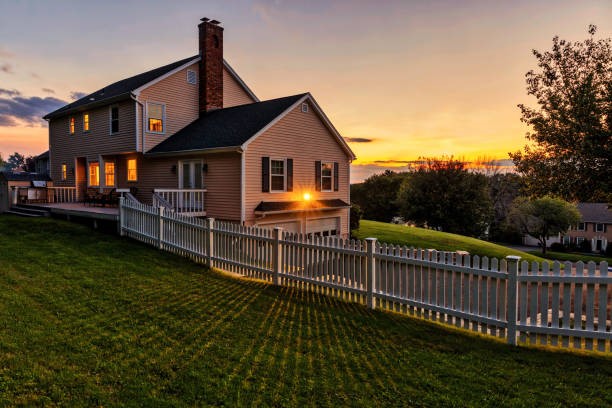5 Causes of Water Damage in Homes
When it comes to small issues in the home that can quickly escalate into major problems, water damage often takes the top spot as the most costly, common, and unfortunately, the most ignored one. You might think that a harmless leak in the bathroom tiles or roof is no big deal, but the reality is that even a small leak can turn into a much bigger and costlier problem over time.
Water damage occurs when water infiltrates structures and causes damage. Whether it is caused by sudden disasters or goes unnoticed due to minor leaks, it will eventually lead to structural issues and create an unhealthy living environment. Therefore, understanding the causes of water damage in your home is essential to take preventive measures and mitigate potential risks promptly.
Now, you might wonder how to identify the signs and protect your home from water damage. In this article, we will explore the five common causes of water damage in homes and discuss ways to prevent them. So, let’s get started!
- Natural Disasters
Snowstorms, hurricanes, and broken dams can all cause excessive water to enter your home, causing it to flood. Since a large amount of water is not absorbable by land, it overflows into homes and causes irreversible damage to the structures. The rising water levels or flash floods enter homes through doors, windows, and foundation cracks, making it difficult to prevent damage with standard preventive measures like sealing entry points or elevating appliances to higher levels.
When dealing with such extreme events, your top priority should be seeking help from a certified water damage restoration company such as Flood Pros. These professionals are highly trained to offer immediate emergency response and complete restoration services, all backed by a lifetime warranty. Besides getting professional assistance, it’s essential to follow the guidelines set by local authorities for evacuation and emergency preparedness. This way, you can ensure your personal safety and minimize water damage.
- Appliance Malfunctions
When appliances get older, they often start making noises, rusting, or malfunctioning. For instance, dishwater leaks can cause an unwelcome puddle in your kitchen. This can damage your electrical wiring, tiles, and even paint. However, a quick tip to prevent the buildup in your dishwasher is to take a quart of vinegar and run it through the machine every month. Also, always rinse the appliance before you load it.
Similarly, worn-out or malfunctioning washing machines, water heaters, and refrigerators can also lead to water damage and overflow. Regularly inspecting and maintaining these appliances, replacing worn-out or damaged fittings, and looking out for any signs of leaks or unusual noises are necessary preventive measures. Additionally, installing an automatic shut-off valve for the water supply connected to appliances can minimize water damage in case of a malfunction.
- Structural Damage
Another common cause of water damage in homes is moisture seeping through crawl spaces, leading to mold and rot. Constant exposure to a damp environment can harm your wooden furniture. Therefore, it is essential to regularly check your home for these signs of water damage. It is also important to maintain your vegetation and trees and clean your gutters timely to prevent water from damaging your house’s walls and foundation.
Next, you need to adjust your home’s water pressure and ensure it is not too high. High water pressure can cause hoses and pipes to fail under pressure. Installing a pressure gauge is one way to keep the water pressure in check, particularly in homes where the pressure cannot be controlled manually. Remember, a weakened home foundation not only leads to standing water, mold growth, or damage to walls and flooring but also affects building materials, causing significant property damage.
- Clogged Drains
One of the most common causes of water damage is clogged drains. Your sink and bathroom drains can quickly get clogged with grease, hair, dirt, and other substances. Moreover, when pipes break down, structural damage becomes a common issue.
If clogged drains are left unchecked, they can easily cause damage to other areas of your home. For instance, if you have a clogged toilet, it can back up into the sink. It may even warp the wall support and floorboards. One way to avoid this is to use small screens that prevent unwanted materials from entering drains.
Also, pour boiling water down the drain at least once a month to help dissolve soap scum, grease, and other debris before it clogs the pipes. If the issue persists, it is better to call a professional to avoid extensive water damage.
- Plumbing Failures
Plumbing failures are the leading cause of water damage in homes. Problems like leaking joints, burst pipes, and faulty plumbing fixtures can result in significant water leakages. For instance, leaks commonly occur when aging pipes corrode. Other causes of water leaks include low-quality fixtures, high water pressure, and freezing temperatures, contributing to major plumbing failures.
Sometimes, strong winds, falling debris, or the force of floodwaters can also damage pipes, causing leaks or complete ruptures. Floodwaters can also overwhelm the sewage systems, leading to sewage backups and contamination.
Thus, ensuring regular inspection and maintenance of your plumbing system, including checking for signs of leaks, corrosion, or erratic water pressure, are essential to prevent such failures. It is also important to understand your home’s plumbing system so that you can promptly address any plumbing issues and minimize the risk of extensive water damage.
Conclusion
Home water damage can lead to expensive repairs, structural problems, and even health risks. Therefore, it is essential to be aware of common causes of water damage and take preventive measures to protect your property and loved ones. Regular maintenance, such as inspecting and maintaining plumbing systems or appliances, will help you identify and address potential issues early on. Don’t hesitate to seek professional help if needed. This will help you avoid overlooking issues or making incorrect assessments of the problem. Good luck!


